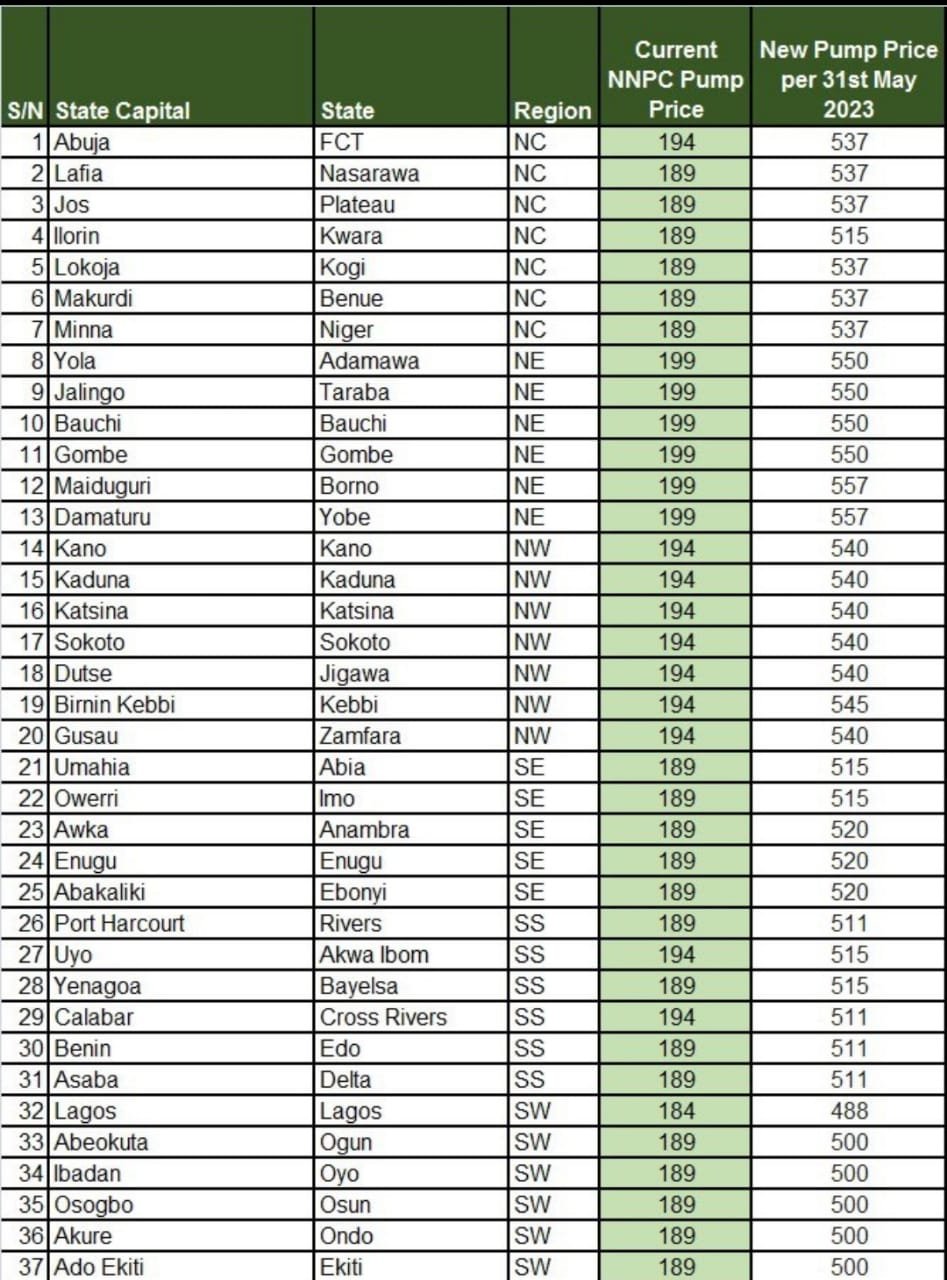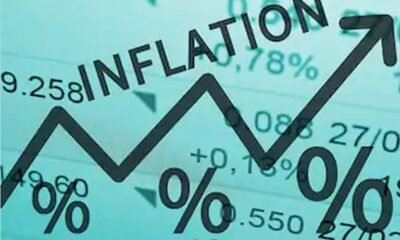Headlines News
NNPC assures Nigerians of fall in fuel pump prices

Mele Kyari, Group Chief Executive Officer of Nigerian National Petroleum Company Limited (NNPC), placated Nigerians’ concerns on Thursday, June 1, 2023, about the growing prices of Premium Motor Spirit (PMS), also known as petrol, across the country.
The NNPC boss stated that competition among major actors in the oil sector would drive down the price of fuel, as opposed to the rising prices that have created worry in the country.
In an interview on Arise TV’s Morning Show on Thursday, Kyari stated that removing subsidy would allow new entries into the market, which he added would help competition and eliminate monopolies.
This, he asserted, would ensure healthy competition, resulting in a downward evaluation of fuel pump prices across the country.
He said, “The beauty of this (subsidy removal) is that there will be new entrants (into the market) because oil marketing companies’ reluctance to come into the market all along is the very fact of the subsidy regime that is in place.
“And that subsidy regime doesn’t have a guarantee of repayment back to those who provide the product at a subsidised price, and now that the market is being regulated, oil marketing companies can actually import product, or even if it is produced locally, they can buy it and take it into the market and sell it at its retail price.
“Therefore, you will see competition, even with NNPC. And by the way, by law, NNPC cannot control more than 30 percent of the market going forward. As soon as the market stabilizes, oil marketing companies are able to come in.
“Competition will definitely come in, and the market will regulate the prices itself. Therefore, this is just an instantaneous price, and within a week or two, you will continue to see different prices because of different approaches from major players. Companies have different approaches to it, and competition will guide that. Ultimately, you’d see changes downward, and it is very likely because efficiency will come in.
“As soon as competition comes in, people will become more efficient in their depots, in managing their trucks, and in managing their fuel stations so that people can come to their stations. And it is showing already; right now, you will see motorists going to stations where they can have price differences, so this will regulate the market, and on its own, the price will come down naturally, and I don’t see any doubt about this.”
Speaking on why fuel stations hiked their pump prices when they still have already subsidised products in stock, the NNPL boss said, “This is the reality of the market. It applies to every commodity, not just petroleum.”
Marketing companies are able to come in.
“Competition will definitely come in, and the market will regulate the prices itself. Therefore, this is just an instantaneous price, and within a week or two, you will continue to see different prices because of different approaches from major players. Companies have different approaches to it, and competition will guide that. Ultimately, you’d see changes downward, and it is very likely because efficiency will come in.
“As soon as competition comes in, people will become more efficient in their depots, in managing their trucks, and in managing their fuel stations so that people can come to their stations. And it is showing already; right now, you will see motorists going to stations where they can have price differences, so this will regulate the market, and on its own, the price will come down naturally, and I don’t see any doubt about this.”
On why fuel stations hiked their pump prices when they still have in stock already subsidised products, the NNPCL boss said, “This is the reality of the market. It applies to every commodity, not just petroleum.”
He added, “It could have been the other way around; prices could have collapsed downwards, and those holding the old stock will have to sell at lower prices to arrive at market condition.
“It is not something serious or strange; this is a stock management issue, and it is very typical; no one can do anything different about this.
“The prices we are seeing today at our station are the current price of the commodity. This means that prices in the market can go down at any time, and of course, the market will adjust itself.”
The increase in the pump price of PMS has resulted in several retail outlets selling the product between 600 and 800 naira in Lagos, Abuja, Ogun, and some other states.










